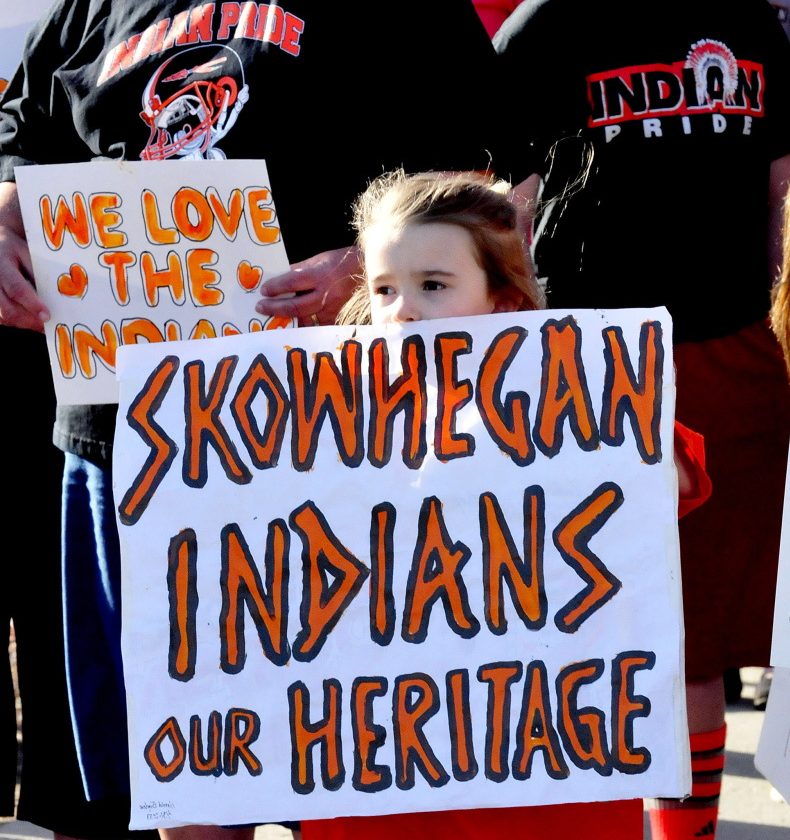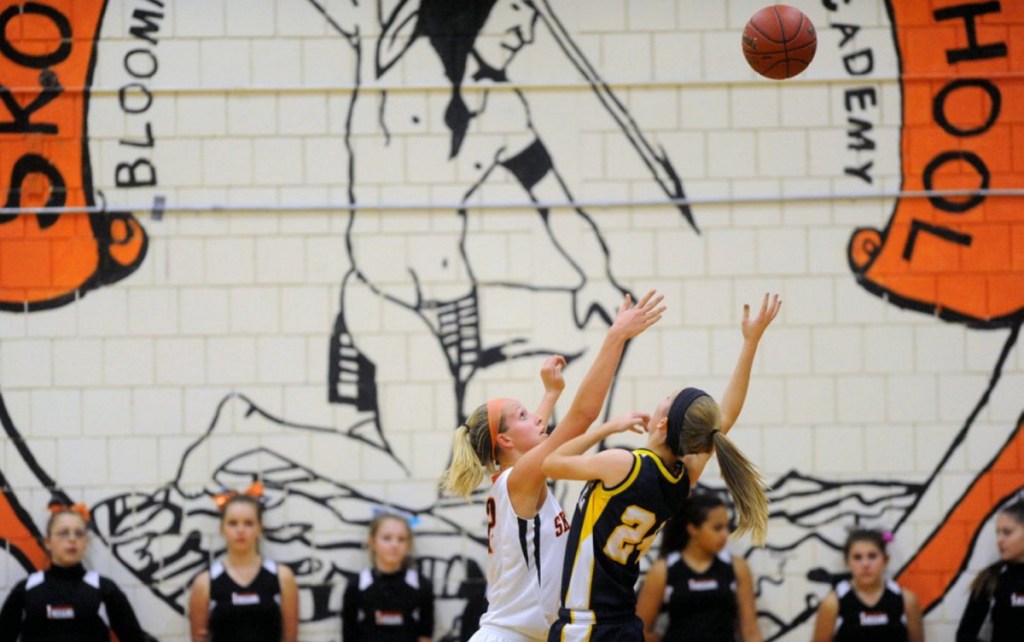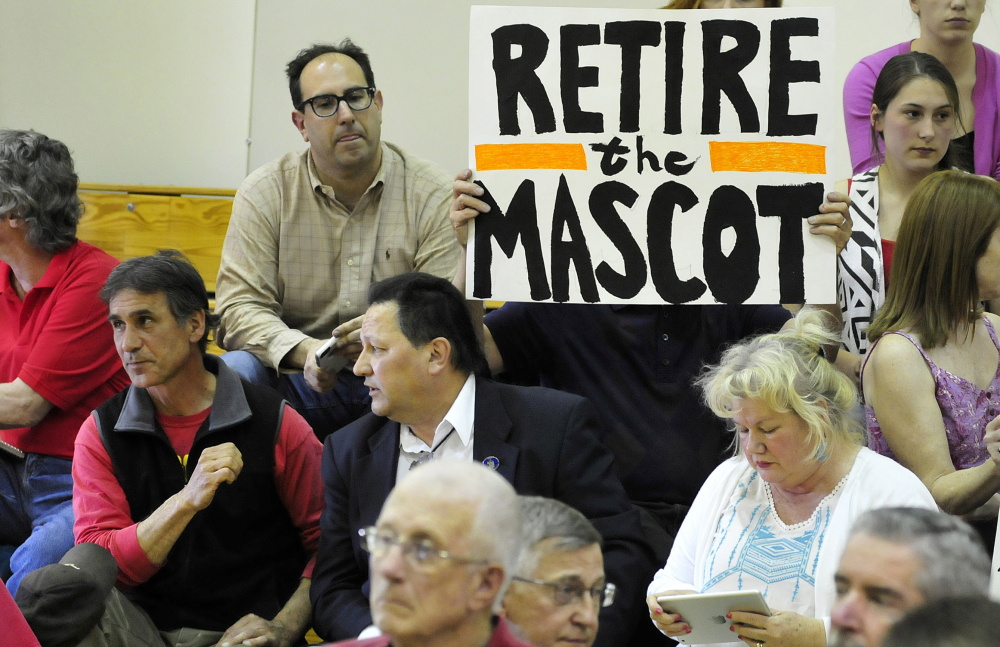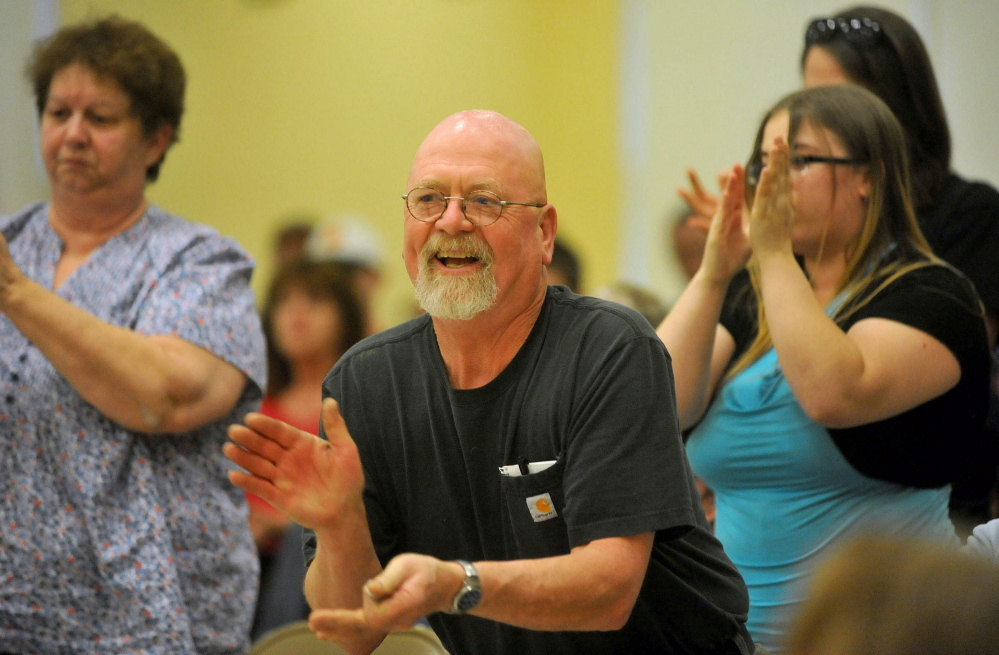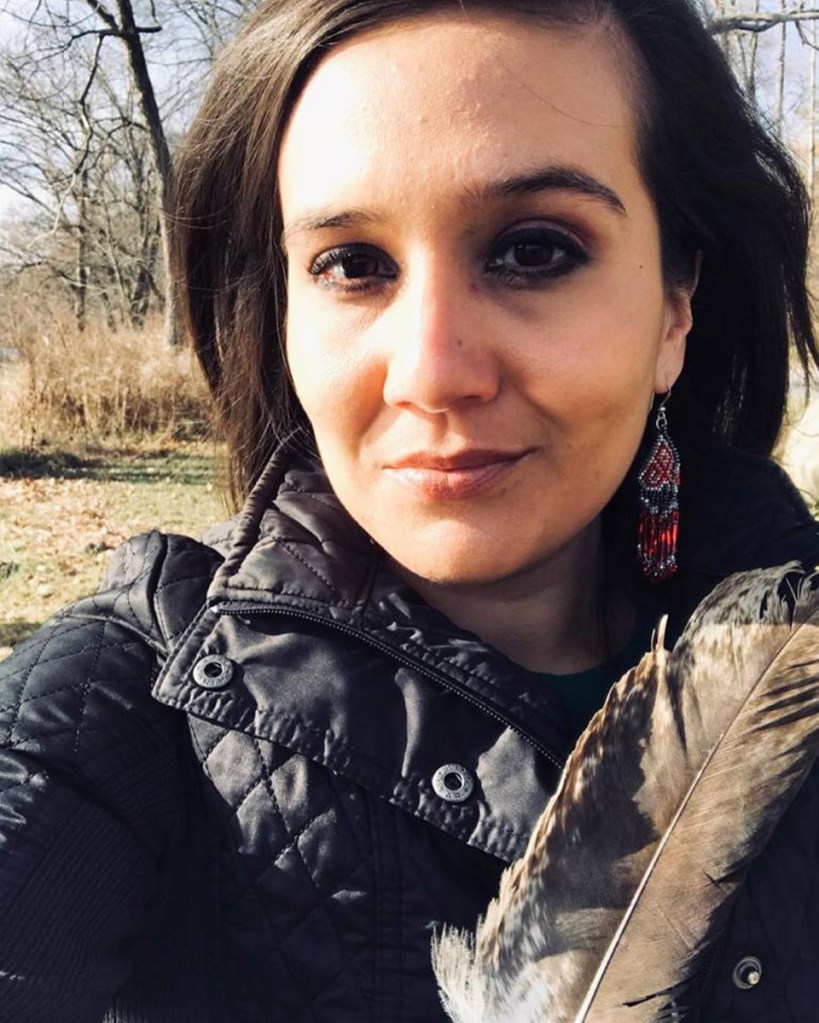SKOWHEGAN — A unanimous vote Wednesday by the Wells-Ogunquit school committee to remove Native American imagery associated with school sports teams now leaves only one high school in Maine using such images: Skowhegan Area High School.
After years of debate in Skowhegan that’s resulted in no change in the nickname, some school officials contacted following the Wells-Ogunquit decision say the Skowhegan Indians may be around for some time to come. Most officials, however, refused even to comment on the issue.
“I am unaware of any planned action to change the name of sports teams at this time,” School Administrative District 54 Superintendent Brent Colbry said this week. “I have received no comments or requests from board members regarding this issue.”
High school Athletic Director Jon Christopher said in an email Thursday that he will not discuss the topic, regardless of the focus or premise.
“Any comments on this will be left to our superintendent and school board, if they choose to comment at any time,” he said.
The Wells-Ogunquit vote ended seven months of discussion after a study committee was appointed to review the Wells High School “Warriors” nickname and its associated “Warrior head” logo, along with other Native American-themed imagery.
The discussion pitted residents who consider the imagery offensive or insensitive against others who viewed it as a proud part of the school’s tradition, just like in Skowhegan, where some locals have said they feel pride in their heritage of naming sports teams after brave and noble Indians.
But some Native Americans living in Maine insist that using their ancestry as a sports mascot is insulting and demeaning, even racist.
Following pressure by those Native Americans for Skowhegan to change its nickname, the district school board narrowly voted in 2015 to keep it.
Maulian Dana, the Penobscot Nation tribal ambassador and founder of the Notyourmascot Maine Chapter Facebook group, said the Wells vote is a good example of a school being responsive to a claim of discrimination.
She said Skowhegan will be next.
“Skowhegan had the chance to do the same thing and unfortunately they let a loud and vocal minority in the school board and town bully and threaten them into keeping racism and hate alive by keeping the mascot,” Dana said. “This racism is evident by many things, one being the chamber of commerce ‘Hunt the Indian’ business promotion that (led) to a public outcry this past December and has resulted in the launch of a public education campaign to make the town welcoming to all races.”
DEBATE AT STALEMATE
It’s been a stalemate in Skowhegan and not quite as simple as it was in Wells.
The Skowhegan town seal is that of a Native American. A mural in the Opera House depicts an Indian spearing a fish in Skowhegan, and tradition says the town’s name means “a place to watch” sea-run fish scaling the falls of the Kennebec River. There also is a large mural on the wall of the high school gymnasium.
There are 11 members left on the 23-member SAD 54 school board that voted 11-9 to keep the Indians nickname in May 2015. Of those 11 members, eight of them voted to keep the name. In district elections held on Tuesday, four incumbent school board members were re-elected, unopposed on the ballot.
Two of those re-elected Tuesday — Lynda Quinn and Harold Bigelow — are staunch supporters of keeping the Indians nickname.
The other two, Amy Rouse and Todd Smith, were not on the board in 2015.
“It’s not before the board now,” Rouse said this week, declining to comment further when asked about the topic.
Smith did not reply to a social media message requesting comment on the issue and did not respond to emails that were sent to all school board members earlier this month seeking comment after it became apparent what the outcome would be in Wells.
In fact, none of the school board members responded to a Morning Sentinel email request for comment. Some might not have seen the email or do not regularly check their SAD 54 mailbox, while others simply did not reply.
Dixie Ring, a school board member from Canaan and the board’s interim chairwoman, replied via social media, saying: “I saw the email and still have no comment.”
Board member Lynda Quinn, who has been a Skowhegan selectwoman and a Somerset County commissioner, said there is really nothing to discuss.
“We got rid of that mascot in 1990,” Quinn said this week, reiterating what she has said in previous interviews. “That was the first time that we sat down with our local Native Americans who had expressed a concern about the names ‘Fighting Indians,’ ‘Running Indians’ and the little caricatures and the imagery we had around that high school. We thought that was reasonable — all they asked, and they said, ‘Please just don’t make fun of us’ — OK, that’s reasonable, so in 1990 all that cartoon stuff was painted away.”
Quinn said a wooden Indian that stood in the cafeteria was removed, costumes worn at basketball games “went away — all that sort of imagery went away. The only thing we didn’t get rid of was the name ‘Indians.’ That’s how we describe ourselves.”
Quinn said she doesn’t see anything wrong with the nickname when “probably 95 percent of the kids that go to that high school” have Native American blood in their veins, including her family.
‘DOING THE RIGHT THING’
But Dana said Skowhegan’s Indians nickname and imagery “continues to be an embarrassment and a black mark on a town, and many residents continue to be fed up with those on the school board who fight so hard to keep the mascot and cannot seem to step into the modern era of equality and doing what is right.
“Those of us who are the true descendants of indigenous people of Maine are not honored by the mascot, and we have been working for years to see it retire,” Dana said. “And it will. It is only a matter of time, and I hope Wells sets a good example for Skowhegan to follow.”
Also in 2015, the Bangor chapter of the NAACP sent a letter to the school district objecting to the use of Native American mascots.
The U.S. Commission on Civil Rights in 2001 called for an end to the use of Native American images and team names by non-native schools, saying that “references, whether mascots and their performances, logos, or names, are disrespectful and offensive to American Indians and others who are offended by such stereotyping.”
School board member Derek Ellis, of Skowhegan, who was not on the board in 2015, said he favors changing the name “Indians.” He said he went to Skowhegan Area High School and was “one of the loudest ones on the bus screaming, ‘We are the Indians, mighty, mighty Indians.'”
But now he said he knows the difference.
“I’m absolutely for doing the right thing,” Ellis said. “I think we have a golden opportunity to teach our kids that doing the right thing isn’t always easy. Sometimes we feel like a piece of us is being taken away. But if you step back and take a good look from outside, it’s hard to ignore the feelings of an entire race of people.
“I am 110 percent for treating all races with respect. The native people deserve that respect. We (Skowhegan) are the last town in the state to hold onto these antiquated ideals.”
Board member Harold Bigelow, of Skowhegan, said during debate over the issue in 2015 that the “Indians” name is a source of pride in community, is the town’s heritage and is not racist.
“This is not a mascot,” Bigelow said at the time. “A mascot is a goat on a rope, a dog on a leash. This is spirit.”
Bigelow wrote in a letter to the editor in March 2015 that his family also has Indian blood and is proud to be an Indian — on the court and at home.
“We Skowhegan Indians are not a mascot by any means, not a costume removed after a game, or something you can wash off,” he wrote. “It’s our heritage, the history of our town and all its hard-working taxpayers who proudly support our teams. I’m sorry (Maulian Dana) and others cannot understand our loyalty and persistence. I myself cannot understand the insecurities and, when all else fails, the taunt of racism.”
Maulian Dana’s father, Barry Dana, of Solon, and the one-time chief of the Penobscot Nation, echoed his daughter’s comments, saying Skowhegan missed an opportunity when the board voted in 2015.
“My sense is there’s enough of a percentage that agrees it should be changed,” Dana said. “If it was 10 percent, I would say we don’t have a prayer. You know, if it’s hovering near 50, that’s pretty strong. And I would definitely guess it’s at least 50 percent.
“I know that there are many, many incredible, well-intentioned people that want this change. I just have to look at that as a positive towards change. We don’t give up. It’s not in our genetics to give up.”
School board member Jennifer Pelotte Poirier, administrator of another Facebook group, called Skowhegan Indian Pride, did not respond Thursday to a request for comment.
Debate in Maine over using Native American images and nicknames dates back at least to 2001; and nationally, back 40 years.
The first Maine school to change was Scarborough High School, in 2001. The school dropped “Redskins” in favor of “Red Storm.” Husson University eliminated the “Braves” nickname and became the Eagles. Wiscasset High School and Sanford High School eliminated the “Redskins” nickname. Wiscasset teams are now known as the Wolverines, while Sanford athletes are the Spartans. In Old Town, the nickname “Indians” was dropped and “Coyotes” was adopted.
Now, Wells is changing, too.
Retired medical doctor Roger Renfrew, of Skowhegan, represented a group that delivered a letter to the school board in December asking them to vote again on changing the Indians nickname for high school sports teams.
Contacted this week by phone, Renfrew said there has been no action by the group since they delivered the letter.
Kennebec Journal sports writer Drew Bonifant contributed to this report.
Doug Harlow — 612-2367
Twitter:@Doug_Harlow
Comments are not available on this story.
Send questions/comments to the editors.


